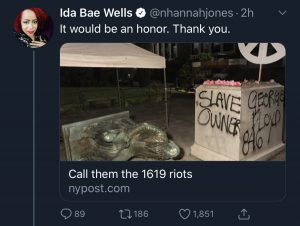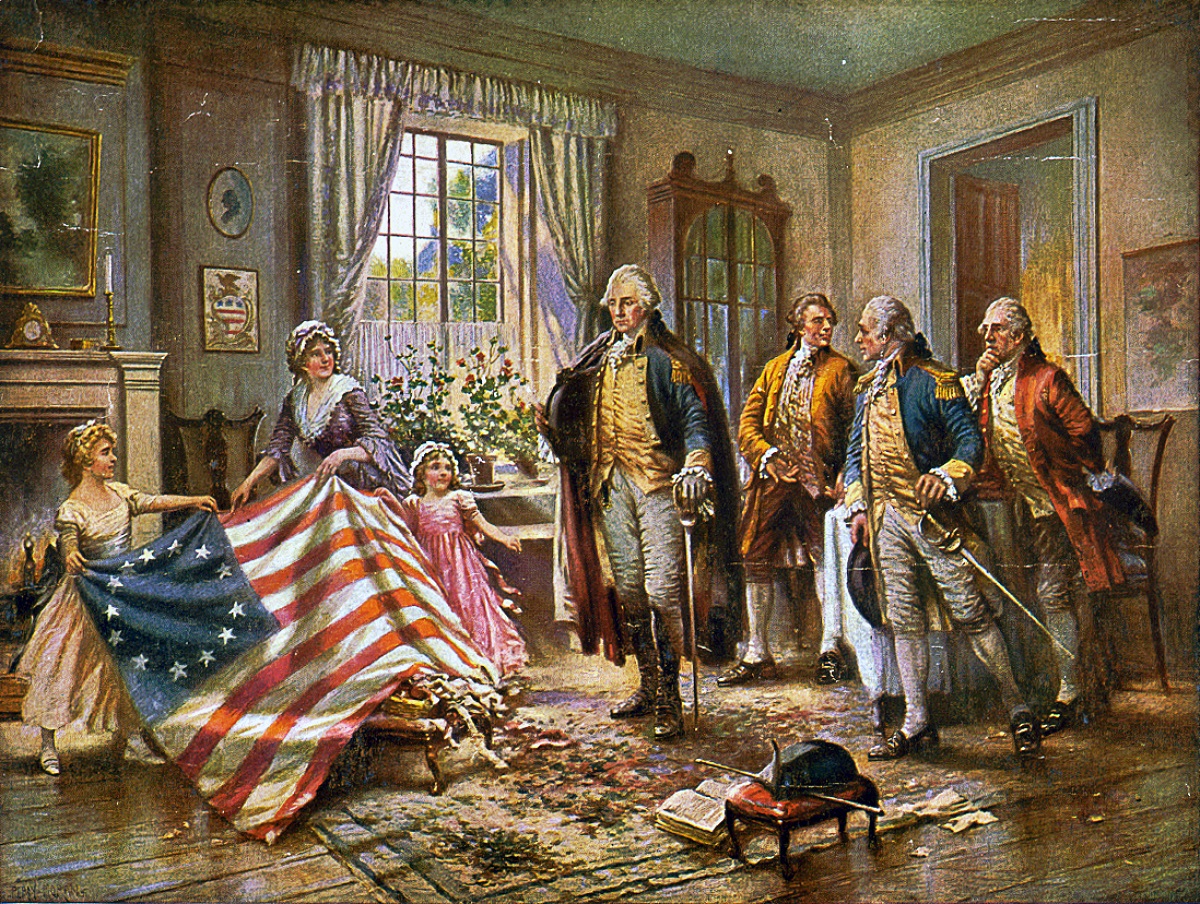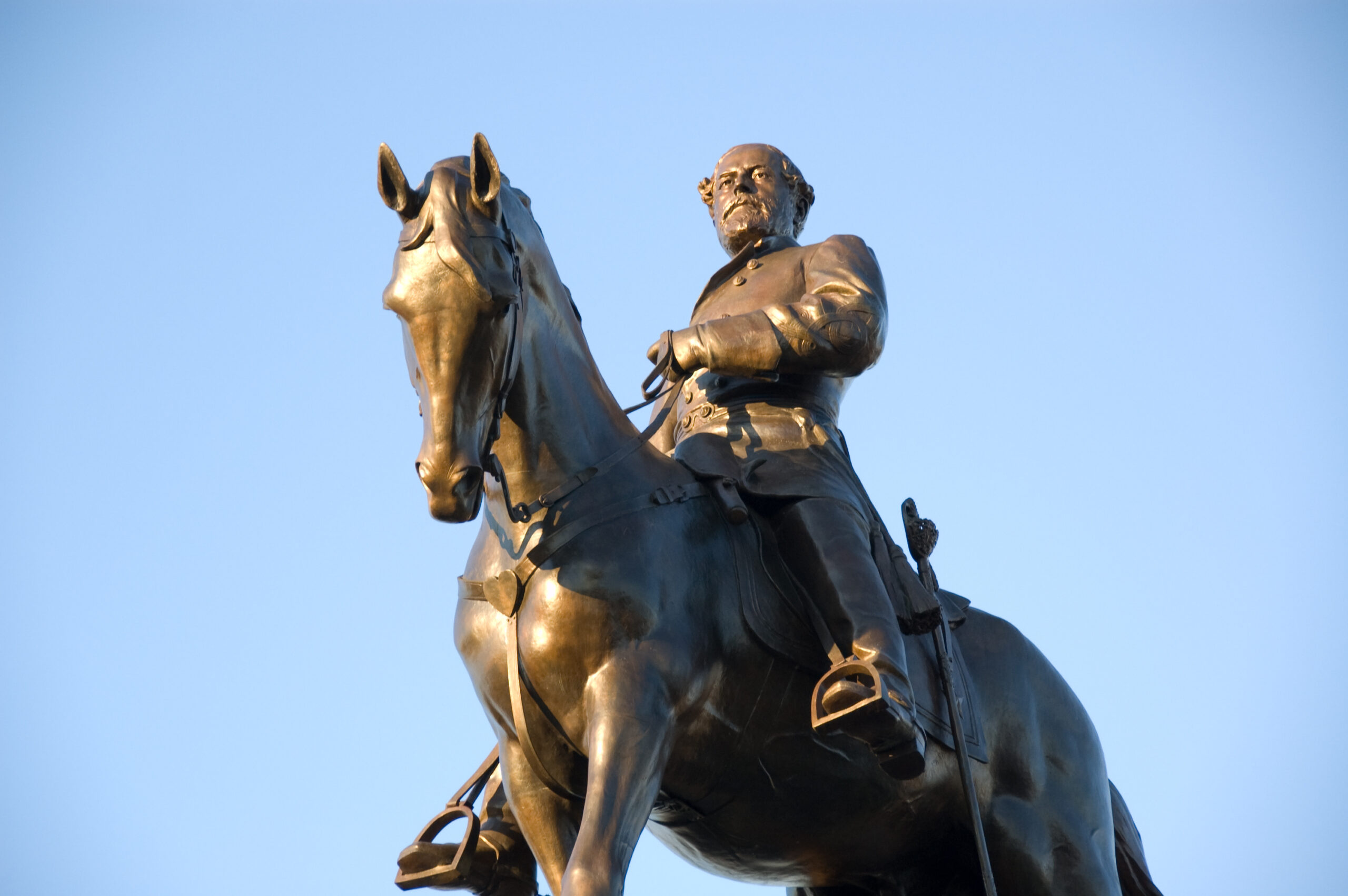The 1776 Report demonstrates a more sophisticated grasp of history than that of its critics.
Senator Tom Cotton against the 1619 Riots

We can give no quarter to mob rule.
Senator Tom Cotton (R-AR) spoke today on the Senate floor against the violence of mob rule and the riots currently sweeping the country. We present the text of his address here.—Eds.
“I hope I am over wary; but if I am not, there is, even now, something of ill omen, amongst us. I mean the increasing disregard for law which pervades the country; the growing disposition to substitute the wild and furious passions, in lieu of the sober judgment of courts; and the worse than savage mobs, for the executive ministers of justice. This disposition is awfully fearful in any community; and that it now exists in ours, though grating to our feelings to admit, it would be a violation of truth, and an insult to our intelligence, to deny. Accounts of outrages committed by mobs, form the everyday news of the times.”
Now, those aren’t my words. Those are the words of a young Abraham Lincoln. But, sadly, they ring with truth today. In recent weeks, violent mobs have roamed our streets, defacing and tearing down statues and monuments, in most cases with neither resistance from the police nor legal consequences.
On Friday, a mob tore down another statue just a few blocks from here. The police stood idly by and watched as rioters toppled it and set it on fire. One can only assume they were ordered not to intervene by Washington’s left-wing mayor. But here’s the thing: steps were already underway to move that statue lawfully; Washington’s delegate in Congress had legislation to that effect. But mobs don’t care to negotiate, only to destroy.
The delegate said, “I have no doubt I could have gotten that bill through, but the people got here before due process.” It’s hard to imagine a more chilling summation of mob rule.
As Lincoln knew, the mob threatens not just old statues, but the lives and livelihoods of us all. Indeed, the mob threatens civilization itself in many ways.
Most simply, Lincoln knew that mobs inevitably make mistakes and commit injustices. Some may celebrate the destruction of disfavored statues and monuments.
But what of the vandals in Boston who defaced a monument to the 54th Massachusetts Infantry Regiment—the first African-American regiment to fight for the Union? The men whose bravery and skill were immortalized in the movie Glory. And what of the outlaws in Philadelphia who defaced a statue of Matthias Baldwin, a devout, passionate abolitionist? Mobs don’t discriminate between “legitimate” and “illegitimate” targets of their destruction. That’s because they are mobs.
Lincoln also warned that the “lawless in spirit” will become “lawless in practice” because of mob violence, seeing no consequences for crimes.
The mob doesn’t stop at statues. Rioters have already torched police precincts and low-income housing in Minneapolis. Churches and synagogues have been vandalized. Next, perhaps, the mob will target the homes of police officers. And soon enough, the mob may come for you, and your home, and your family.
And as the mob expands its power, Lincoln cautioned that good citizens, “seeing their property destroyed; their families insulted, and their lives endangered; their persons injured; and seeing nothing in prospect that forebodes a change for the better; become tired of, and disgusted with, a Government that offers them no protection.” Mob rule can only serve to demoralize our people and shake their faith in our government and our way of life. As the mob rises, civilization recedes.
Finally, Lincoln observed that “by operation of this mobocractic spirit, which all must admit, is now abroad in the land, the strongest bulwark of any Government, and particularly of those constituted like ours, may effectually be broken down and destroyed—I mean the attachment of the People.” The final victim of mob rule is the very spirit of civic-minded patriotism that’s necessary to preserve our republic.
And for all these reasons, Lincoln said, “There is no grievance that is a fit object of redress by mob law.” We cannot tolerate mob rule and we cannot allow it to go unpunished.
While local authorities would usually take the lead in prosecuting these crimes, unfortunately many of them seem unwilling to stand up to the mob and uphold the rule of the law. Therefore, I call upon the Department of Justice to bring charges against these mob vigilantes, prosecuting them to the fullest extent of the law.
The Anti-Riot Act and the Veterans Memorial Preservation and Recognition Act can provide legal grounds in some cases. Still other federal statutes may govern in other cases. But there must be consequences for mob violence. Because if you give the mob an inch, it’ll take a mile.
Witness the events of just this past weekend, where mobs tore down statues of George Washington and Ulysses S. Grant. When you tear down statues of Washington and Grant, it’s not about the Civil War—it’s because you hate America.
 And indeed, these rioters hate America. In Portland, where they tore down the statue of Washington, they also spray-painted on him the date “1619”—a reference to the New York Times’s revisionist anti-American history project. Perhaps we should call them the “1619 Riots.” If we did, the architect of that execrable project said, “it would be an honor.”
And indeed, these rioters hate America. In Portland, where they tore down the statue of Washington, they also spray-painted on him the date “1619”—a reference to the New York Times’s revisionist anti-American history project. Perhaps we should call them the “1619 Riots.” If we did, the architect of that execrable project said, “it would be an honor.”
This hatred for America was nowhere on greater display than in San Francisco, where the mob tore down the statue of Grant. That would be U.S. Grant, commander of the Union Army whose very initials embodied his tenacious, unrelenting approach to war: “unconditional surrender.”
That would also be President Grant, the political heir of Abraham Lincoln, a statesman who smashed the first Ku Klux Klan, signed the first major civil-rights legislation, and presided over passage of the Fifteenth Amendment. In one famous instance, President Grant sent in the troops to disperse a white mob in New Orleans that was terrorizing the city’s black and Republican residents, and had deposed the state’s lawful governor.
Grant had zero tolerance for mob rule. He said “neither Ku Klux Klans, White Leagues, nor any other association using arms and violence to execute their unlawful purposes can be permitted in that way to govern any part of this country.”
This was a man whom the great Frederick Douglass eulogized as “too broad for prejudice, too humane to despise the humblest, too great to be small at any point.” Yet the mob still came for Grant.
Some people have been asking, where is the line? I say, this is the line—the line between mob rule and the rule of law. And since I began by quoting Lincoln, I’ll conclude by borrowing from Grant, who wrote during the Battle of Spotsylvania: “I propose to fight it out on this line if it takes all summer.”
And I’ll fight it out on this line if it takes a lot longer than that.
The American Mind presents a range of perspectives. Views are writers’ own and do not necessarily represent those of The Claremont Institute.
The American Mind is a publication of the Claremont Institute, a non-profit 501(c)(3) organization, dedicated to restoring the principles of the American Founding to their rightful, preeminent authority in our national life. Interested in supporting our work? Gifts to the Claremont Institute are tax-deductible.
A plan to revive the American memory.



